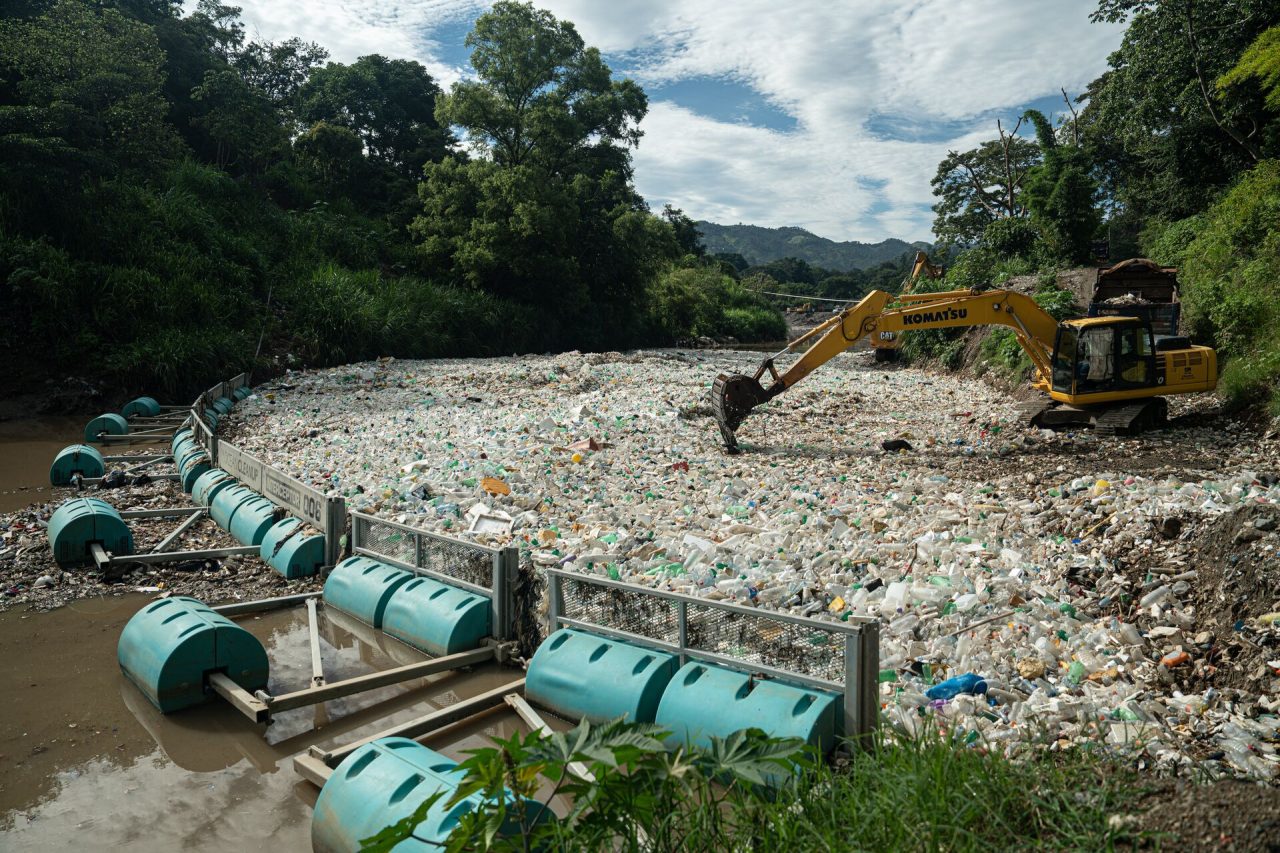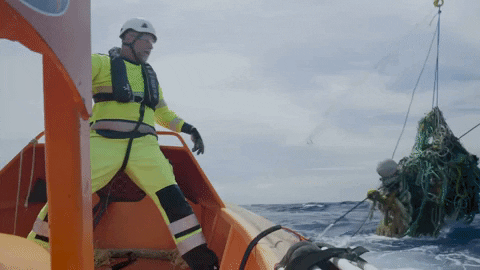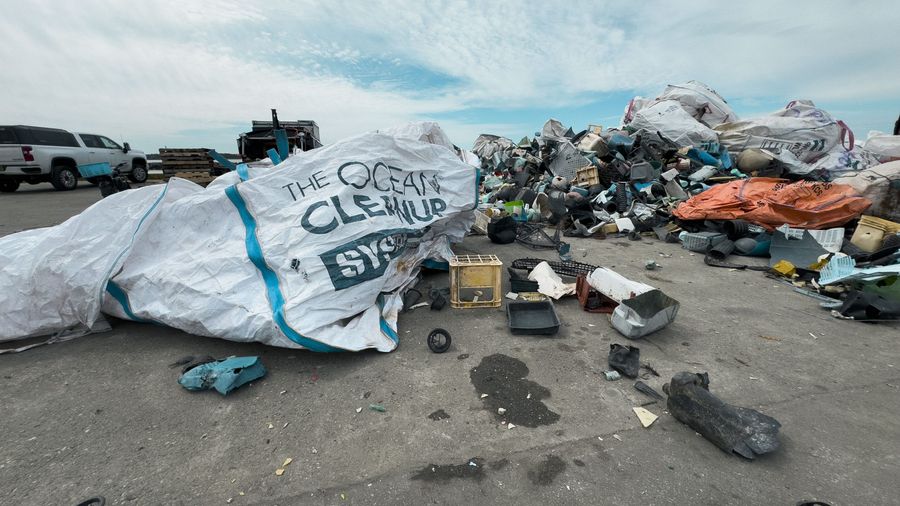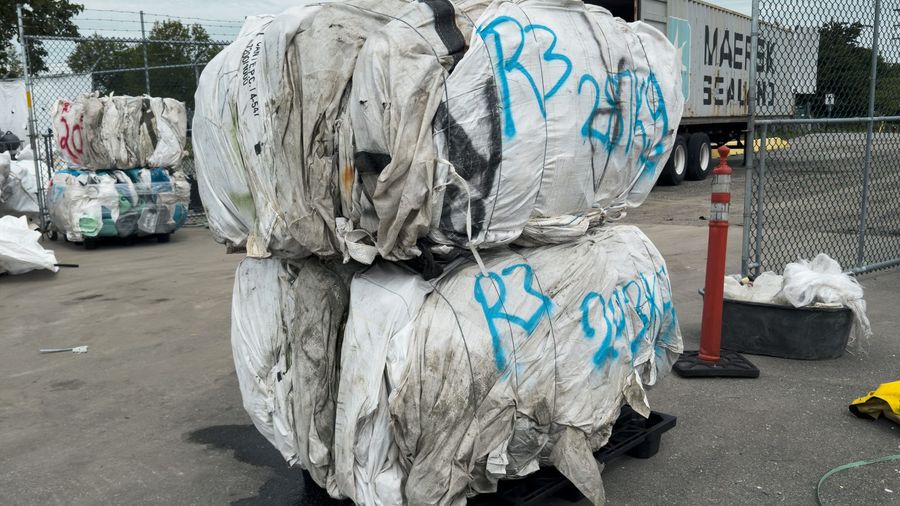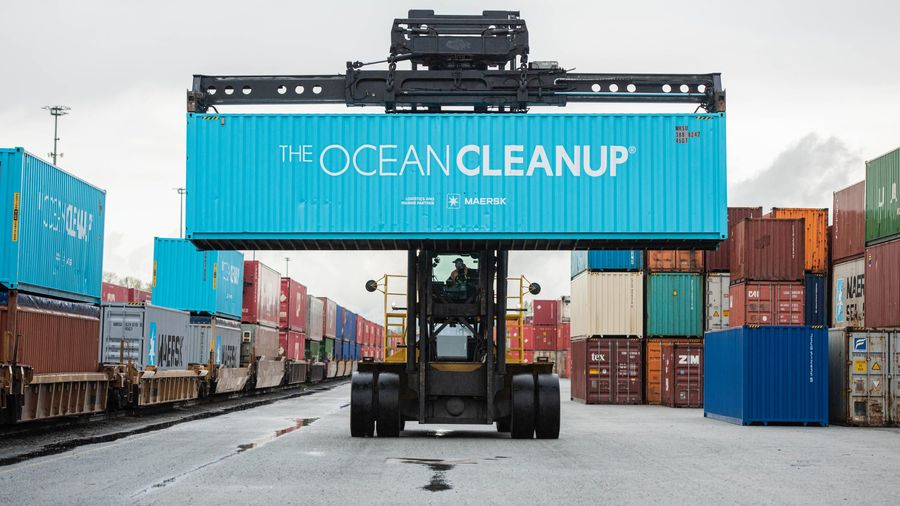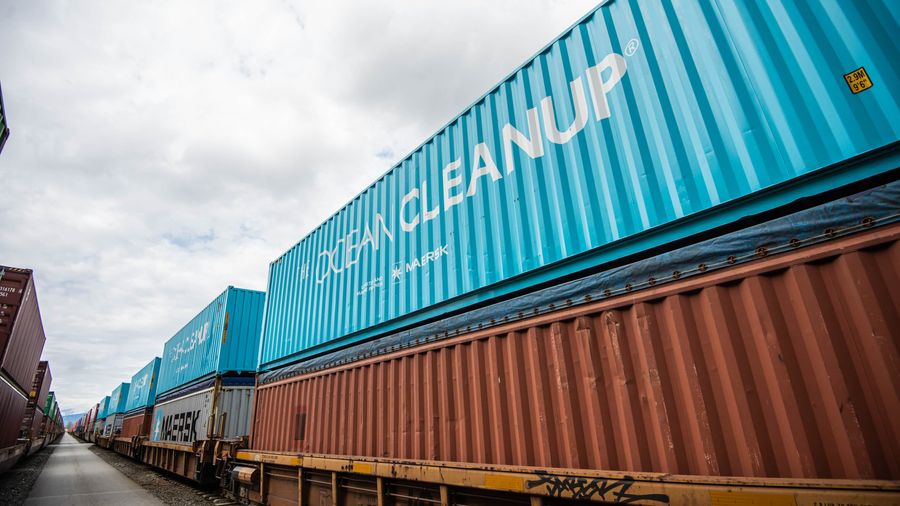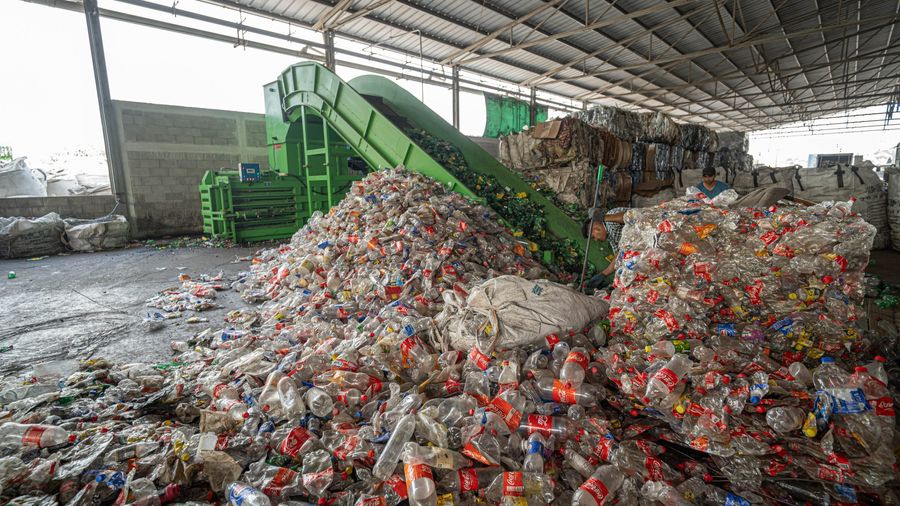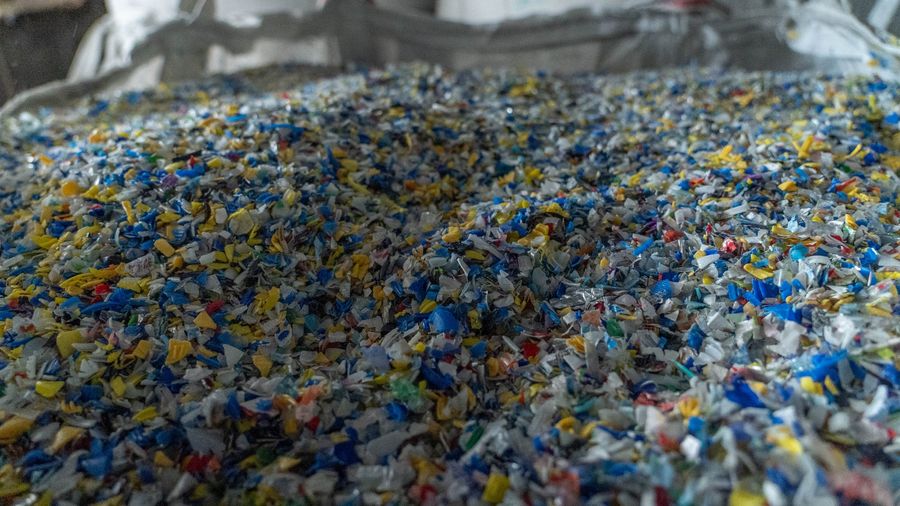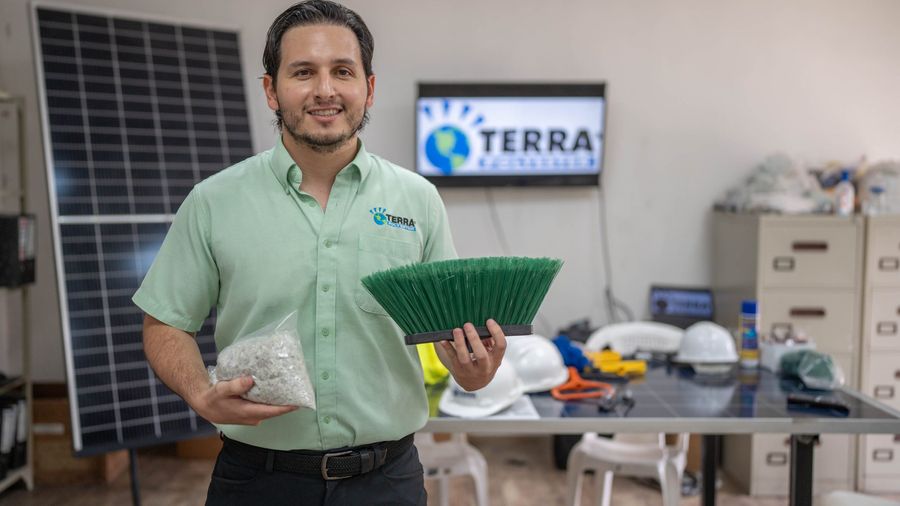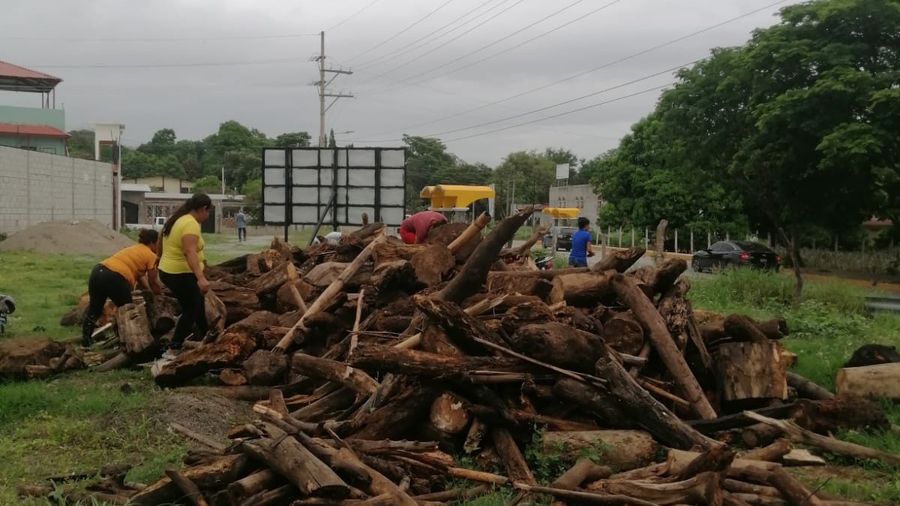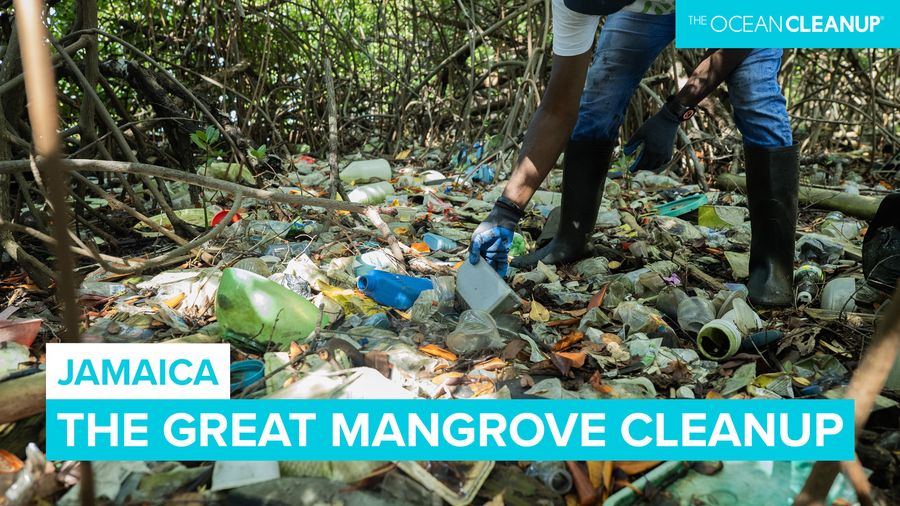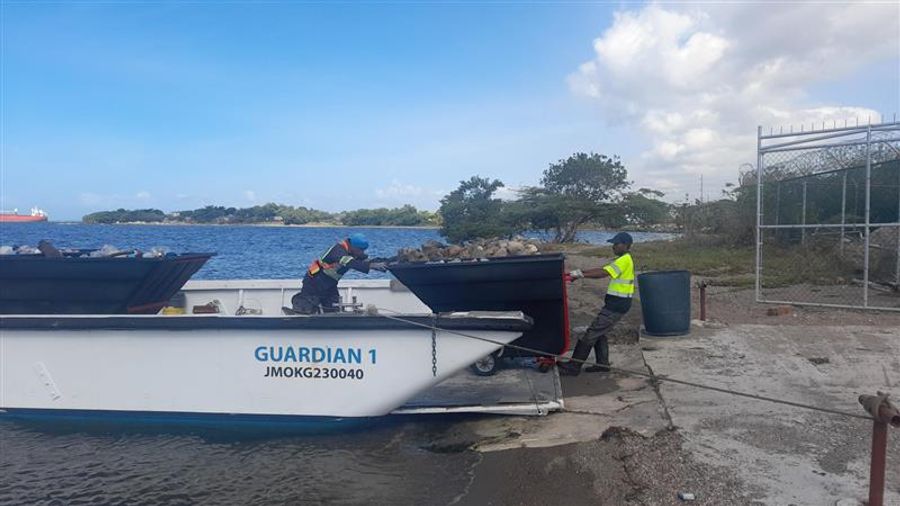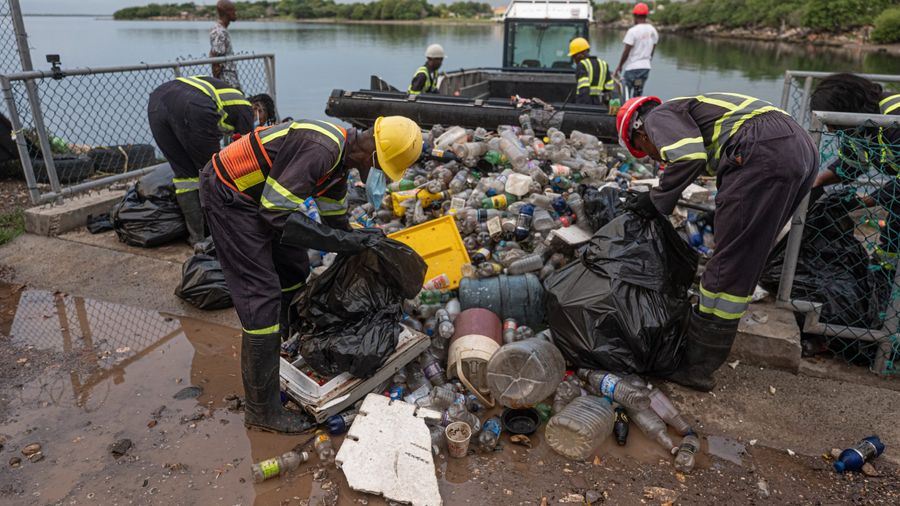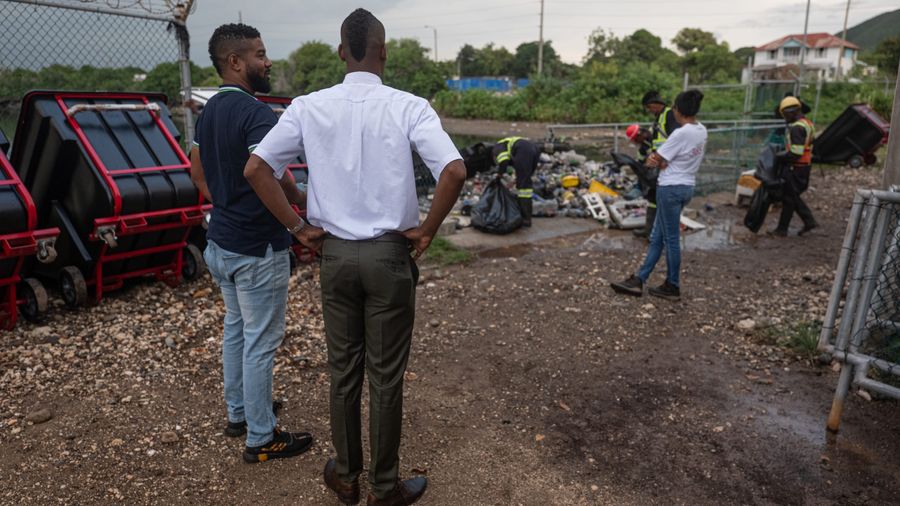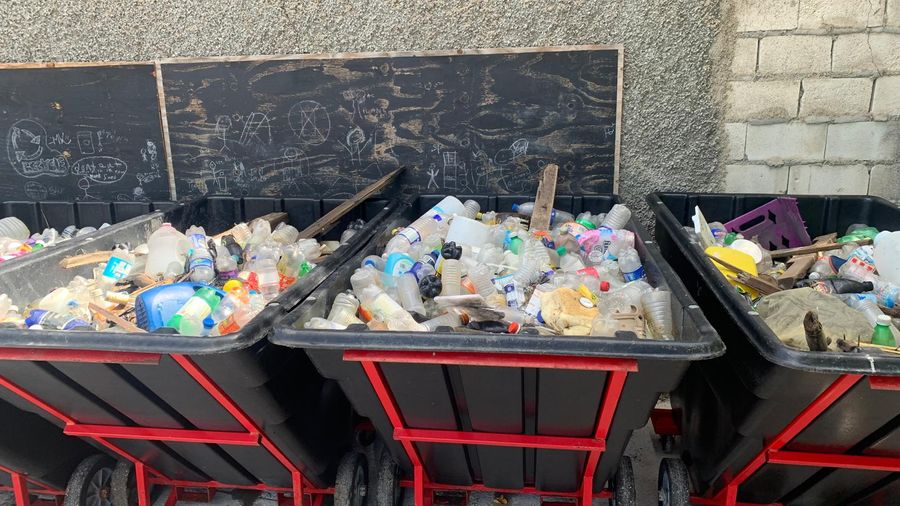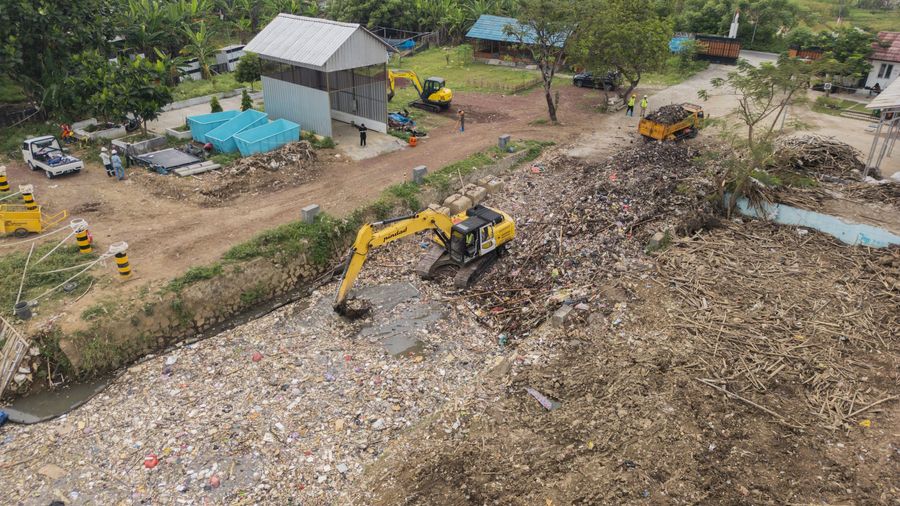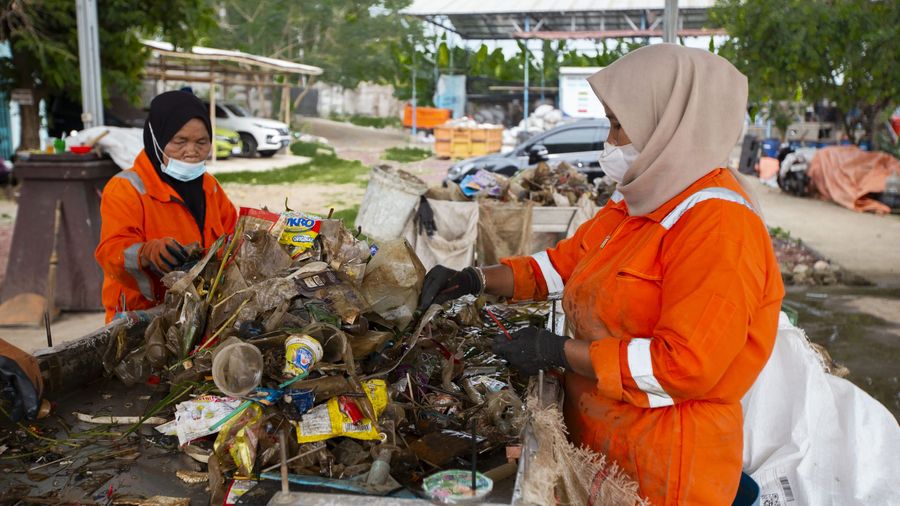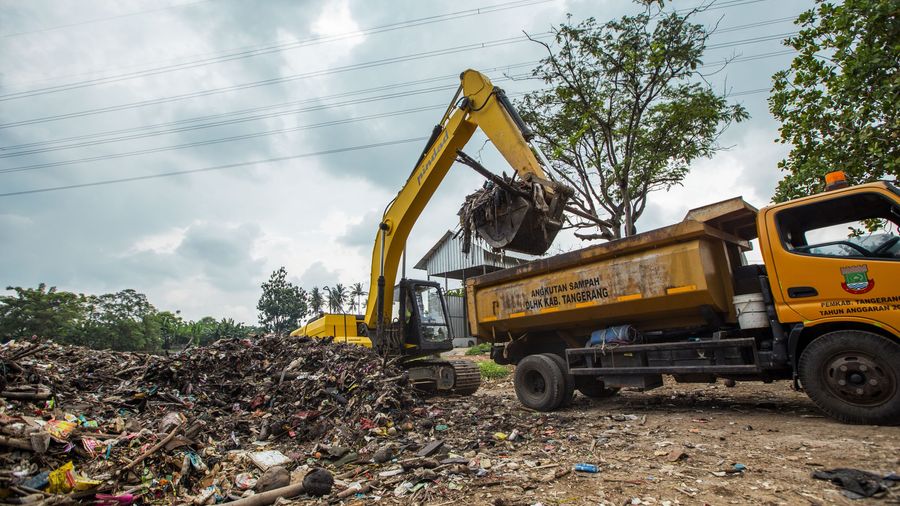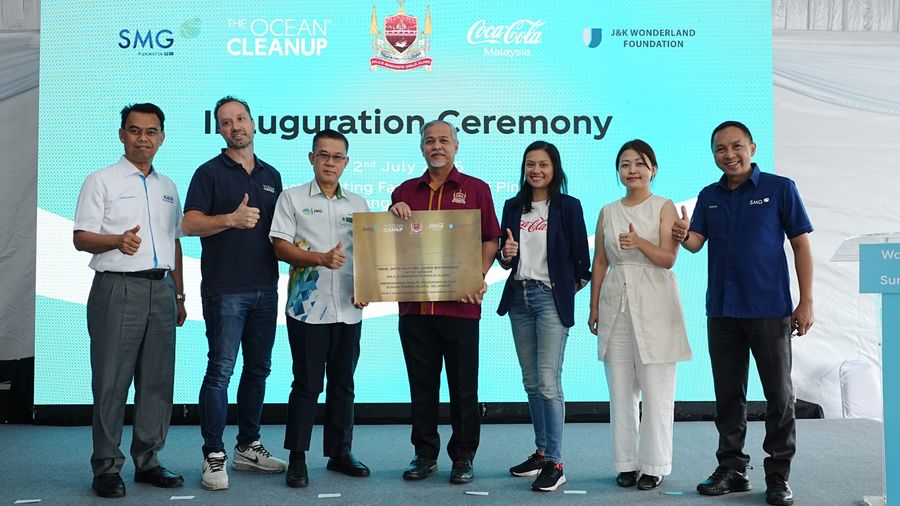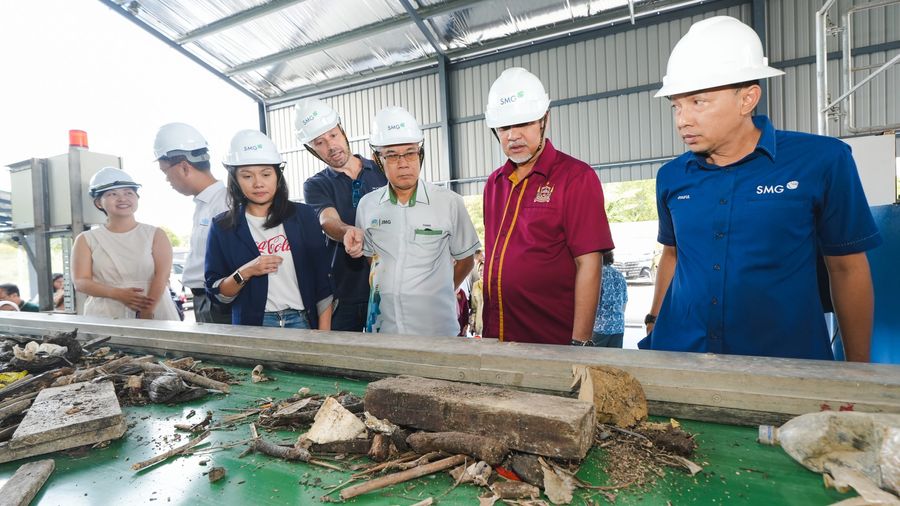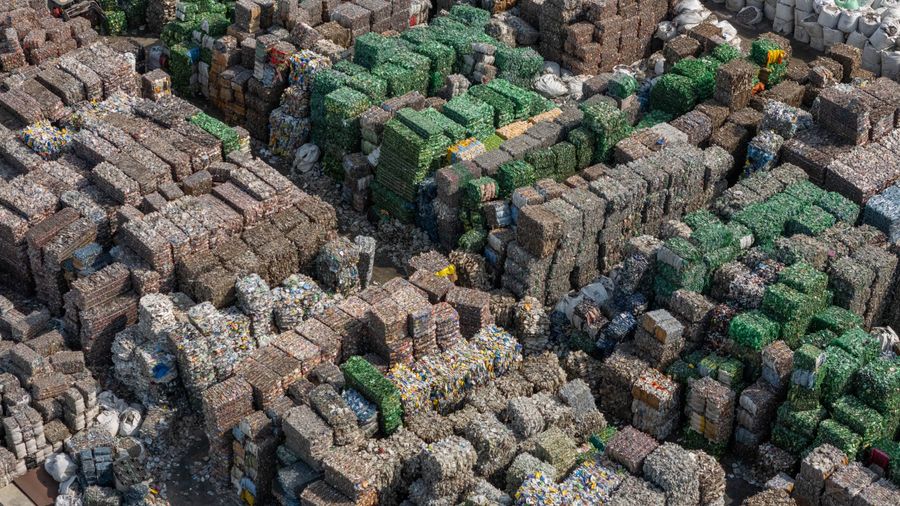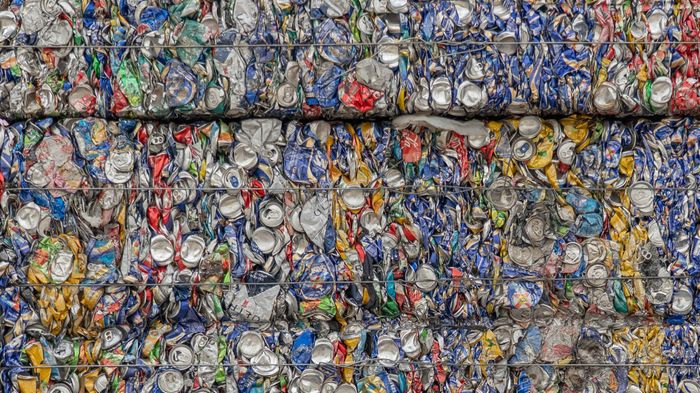
Rethinking Waste: Towards smarter management solutions
Back to updates- Plastic pollution in our oceans is part of a much bigger problem of how the world manages its waste. Cleaning up what’s already out there is important, but it won’t make a lasting difference unless we also stop new plastic from entering the oceans and helping communities and other stakeholders find better ways to handle trash.
- For the past ten years, our mission has taken us from scooping plastic from the Great Pacific Garbage Patch (GPGP) to stopping trash before it reaches the ocean by intercepting millions of kilos of waste in some of the most polluted rivers on Earth.
- The next step in our mission to reduce 90% of floating plastic is to scale up our current efforts through our 30 Cities Program, through which we expect to intercept up to one third of all plastic flowing from the world’s rivers into the ocean.
What does The Ocean Cleanup do with the trash it collects?
Plastic from the GPGP, certified by a third-party quality assurance company, has been transformed into commercial-grade plastic pellets. These pellets can be used in traditional plastic processes to create a wide range of durable items including sunglasses and vehicle parts.
As it is in international waters trash recovered from the GPGP is owned by The Ocean Cleanup. Waste collected by Interceptors is owned by the local jurisdiction, where we operate under existing local waste management infrastructures. As such, the waste collected has a different processing pathway tailored to fit within local contexts, capacities, and realities.
Unlike the GPGP, where trash is primarily plastic, river pollution contains several different materials including industrial and household waste. The composition of the pollution we intercept also varies from site to site. This adds another level of complexity but also opens new opportunities for reuse and recycling.
There is no one-size-fits-all approach to cleaning these waterways. However, by working with local partners we can identify and implement lasting, responsible, solutions. In addition to cleaning the environment, these collaborations provide new jobs, usable recyclable materials, and a foundation for future waste management improvements.
Below are a few examples of how we operate in different countries and contexts:
El Quetzalito – Guatemala
At the mouth of the Rio Motagua in Guatemala, a team of over 40 people from the Ministry of Environment and Natural Resources (MARN) are working at the site of Interceptor 021 which has been collecting up to 900,000 kg of trash per month. Responsible for almost 2% of all plastic emissions into the ocean, the Motagua is one of the most polluting rivers in the world.
The waste collected in El Quetzalito is sent to a sorting center, where materials which can be recovered and recycled are processed accordingly: organic waste is transformed into compost, wood is taken to low income communities impacted by deforestation for use as cooking fuel, whilst polyethylene terephthalate (PET) plastic is transported to the Terra Polyester recycling plant in Honduras where it is used to make a range of household items including pillows, mops and brushes.
Kingston Harbour – Jamaica
In Jamaica, The Ocean Cleanup has deployed nine Interceptors in the gullies feeding into Kingston Harbour. Alongside our partners, the GraceKennedy Foundation and Clean Harbours Jamaica, we have developed a comprehensive grassroots campaign to clean Kingston Harbour. This includes educational activities at schools, tour visits to the Michael Manley Boulevard offloading site, and clean ups of existing plastic waste from mangroves which have negatively impacted local fishermen and their communities.
So far, our Jamaican Interceptors have collected several million kilos of trash with a number of people employed throughout the process. Following the sorting process, a local company exports PET and High Density Poly Ethylene (HDPE), used in packaging and consumer goods, to recycling plants in the United States, Europe, and several other countries, while non-recyclable waste enters local waste management. In 2024 alone, over 32,000 kg of plastic was successfully diverted from landfill and recycled.
Cisadane – Indonesia
The Cisadane is one of Indonesia’s top five most polluted rivers, with an estimated 3,000,000 kg of trash flowing into the Java Sea each year. Interceptor 020 is our second deployment in Indonesia and has been a key part of a collaborative project with the Environmental Agency Tangerang Regency and Bumi Pertiwi Asri Foundation to support ongoing development and upgrading of local waste management programs.
Interceptor 020 has increased the processing capacity of the adjacent Tanjung Burung Waste Bank from 200 kg to 600,000 kg per month, creating up to 30 jobs for local community members as a result. In addition to plastic recycling and the composting of organic waste, pilot programs are underway to transform timber and bamboo into furniture and alternative fuel.
Klang – Malaysia
Home to Interceptors 002 and 005, Malaysia’s Klang River is one of the world’s most polluted waterways and cleaning it is a focal point of the Selangor state government’s Marine Gateway (SMG) Initiative. As part of a collaborative effort led by Landasan Lumayan Sdn Bhd, our Interceptors have captured millions of kilos of waste and have provided our local partners with opportunities to scale up their river cleaning efforts faster.
A new semi-automatic waste sorting facility was recently opened next to Interceptor 002 to help divert collected river waste from landfill and promote circular solutions. The new facility has created six full-time jobs for workers separating recyclables, such as plastic and aluminum, from organic and non-recyclable waste. Operating at capacity, this new facility is expected to process up to 15,000 kg of trash per day.
What about the non-recyclable trash?
The Ocean Cleanup, alongside our local and international partners, is committed to finding responsible solutions for the plastic pollution and trash we recover from the ocean and riverine systems. This means working within the constraints and opportunities provided by each country and their available infrastructure.
According to a 2024 UN Environment Programme report, nearly 40% of all municipal solid waste produced globally is disposed of in an uncontrolled manner. This translates to over 800 million tons of waste a year being improperly managed, a portion of which enter our waterways on their way to the ocean. Of the waste that is disposed of responsibly, 70% is landfilled or incinerated.
Material recovery is our top priority. Recovery, sorting, recycling, and reuse of materials is dependent on the realities in our project locations. A small portion of what we recover from rivers is able to be recycled and reused, with the remaining waste disposed of responsibly with the guidance and support of local partners through co-processing, incineration, and landfills.
While reintegrating materials into the economy remains the preferred approach, responsible disposal or energy recovery is far better than leaving trash to degrade within natural environments where it impacts on humans, ecosystems and biodiversity.
